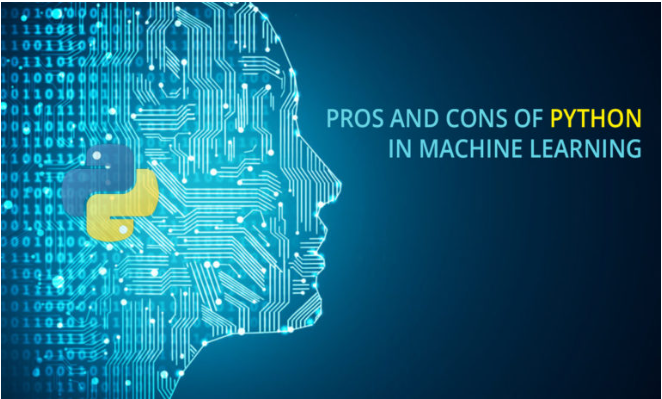- info@sageacademy.co.in
- 7982662083 /
ML - Python

About Course:
Python is also known to be an important programming language for web development, artificial intelligence, scientific computing and data analysis. Many organizations use python to build productivity tools, desktop applications and much more. It is highly popular and dependable as many organizations uses python for their business purposes and are constantly looking for people with Python Programming skills. Therefore, it is necessary that you begin with Python as it offers great scope and job opportunity. Sage Academy is a leading Python training provider in New Delhi.
Who can learn this course:
Sage Academy is a rapidly developing corporate practical training and development company based in Delhi that helps people to learn new skills and become job-worthy. Enrolling our Python Machine Learning program that is helpful to career enhancement of experienced professionals or Freshers. People who have taken a sabbatical from their careers like Graduates can also learn new skills and become employable with the help of our practical training and certifications courses. We promise to meet all your training and development needs and make you an expert in a few weeks. Trust us once and you’ll be happy you did.
Python Machine Learning Training Course
Module 1 - Basic Python
- Using Arithmetic Operators in Python
- The Double Equality Sign
- How to Reassign Values
- Understanding Line Continuation
- Indexing Elements
- Structuring with Indentation
- Operators
- Create Functions with Parameters
Module 2 – Data Handling and Manipulation
- Introduction to NumPy and SciPy
- Introduction To Type of Data Variables
- Data Summarization Techniques
- Building A Data Dictionary
- Outlier Treatment
- Missing Value Treatment.
- Data manipulation using Pandas
- Import and export
- Database access with SQL.
Module 3 Analytics and Visualization
- Introduction to Seaborn and Matplotlib
- Plotting with Matplotlib
- Types of Charts & Graphs (Line, Bar, Histogram, Pie Chart, Scatter Plot)
Module 4- Linear Regression, Polynomial Regression and Logistic Regression:
- Introduction to linear regression technique & it uses
- Details of ordinary least squares estimation technique
- Modeling steps
- Validation of linear regression assumptions
- Metrics to measure model performance.
- Data Preparation Model Building
- Introduction to logistic regression technique & it uses
- Maximum likelihood estimation technique
- Dependent variable definition, handling
- Weight of Evidence & Information Value
- Variable reduction
- Model statistics interpretation
Module 5 - Classification using Naive Bayes (Supervised Learning)
- Understanding Naïve Bayes – basic concepts & algorithm.
- Understanding decision trees
- Understanding classification rules.
- Applying Naïve Bayes Classifier
- K Nearest Neighbors
- Applying K Nearest Neighbors
- Decision Tree, Apply Decision tree
- Random Forest, Apply Random Forest
- Vector Machine, Apply Support Vector Machine
Module 6 – Classification using Nearest Neighbors (Unsupervised Learning):
- Hierarchical Clustering, Apply Hierarchical Clustering
- K Means Clustering, Apply K Means Clustering
- Understanding classification using nearest neighbors
- The KNN Nearest Neighbors
- Preparing data for use with KNN
- Outlier Detection, Principal Component Analysis
- Singular Value Decomposition
- Apply Singular value decomposition
Module 7 - Neural Networks and Support Vector Machines:
- Understanding neural networks. Activation functions. Network topology.
- Building Neural Network with TensorFlow.
- Convolutional Neural Networks (CNN)
- Understanding SVM. Classification with hyper planes. Finding the maximum margin.
- Using kernels for nonlinear spaces.
Module 8 – Natural Language Processing:
- Text Classification, Dataset for Text Classification
- Text Classification using RNN
- Text classification using CNN
- Information Extraction
- Named Entity Recognition (NER) using Spacy
- Sentiment Analysis, Sentiment analysis using Vader
- Text Generation, Text Generation using FNET.
- Text Generation using Recurrent Long Short-Term Memory Network
Module 9 - Text mining And Over fitting And Initialization:
- Main concepts and components of text mining
- Text mining tasks and approaches
- An understanding of the art of the possible in Text Analytics – the applicability
- components and benefits
- Under fitting and Over fitting for Classification
- Training, Validation, and Test Datasets
- N-Fold Cross Validation
- Early Stopping or When to Stop Training
- Initializations
Report Development

